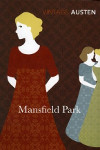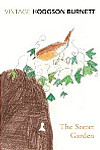Julie Buxbaum – After You
Posted 8th September 2010
Category: Reviews Genres: 2000s, Domestic
1 Comment

Life can get ahead of you and it can take a shocking event to make you realise how precious things are before you lose them and yourself.
Publisher: Bantam Books (Random House)
Pages: 399
Type: Fiction
Age: Adult
ISBN: 978-0-55381-884-0
First Published: 2009
Date Reviewed: 2nd September 2010
Rating: 2.5/5
When Ellie hears that her best friend Lucy has been killed she immediately flies to the UK to be with Sophie, the daughter left behind. Ellie introduces Sophie to The Secret Garden and together they read the book for therapy. But Ellie makes no plans to go back home and as the days wear on her husband begins to question her reasons for staying. It seems that through Lucy’s death and Ellie’s upheaval the issues that were haunting Ellie, unwittingly, have been dragged to the surface. She now realises where things need to change, but the question is how to go about it?
The idea for the book is simple and although not utterly compelling it’s a good enough reason to read. However I had a major issue with this book that really spoilt it for me so I’d like to discuss that first.
Buxbaum makes her character a commentator of British life and the assumptions made I personally found rather offensive. Had these assumptions and slurs been few it would have been easy to overlook but there were many many references to “Brits” and “Britain” throughout the book and 90% of them dealt with it’s people. The tragedy of Lucy’s death is placed behind a myriad of subtle and not-so-subtle prejudiced remarks. What started as a humorous look at difference turned into a slander match, which is especially odd when you consider that Americans and Brits aren’t so different.
An example, one of the worst, is the statement that British children are not demonstrative of love. I’m sorry, but this is rubbish and I can see no possibility but this being Buxbaum’s own opinion.
Unfortunately it took a lot of digging for me to unearth the goodness from where it had got lost under the remarks.
A well-used topic in the book is another book itself – Ellie and Sophie read their way through Frances Hodgson Burnett’s The Secret Garden, and the story overlaps with their life and with the themes in After You itself. Here I’ll quote from the quotation included from The Secret Garden:
To let a sad thought or a bad one get into your mind is as dangerous as letting a scarlet fever germ get into your body. If you let it stay there after it has got in you may never get over it as long as you live.
The above has been used by Buxbaum to illustrate one of the themes in After You – Ellie’s loss a few years before the book started has been allowed to fester and grow out of control so much so that it impacted her marriage to dire effect. The quotation from The Secret Garden comes right at the time when Ellie is starting to realise exactly how her life has become the sad event it has and when she’s realising that if she’d stopped it things would be different.
The biggest theme of the book is questioning what you have; is it enough, is it good enough for you, do you need more? Buxbaum never talks about “you don’t know what you had until you lose it”, though this could be applied, rather she talks about living contented and not letting difficulties ruin things that aren’t related to them. One of the characters in the book says that they failed the test, and it is then that the concept comes into play – something that should have brought joy brought instead sorrow, but it didn’t stop there, it brought sorrow to a place where it was not untitled to go.
It is evident where Ellie’s problems stem from, and the reader knows this long before she does. In many books this structure is frustrating but here it is warranted. It allows you to sympathize and cheer for Ellie, to really understand how someone can be affected by what she went through, and allows for character growth.
Buxbaum loves her metaphors and hiding themes and ideas within cleverly designed sentences. She doesn’t make it hard to discover what she’s really talking about which, on the face of it that may be considered a bad thing, but in the case of this book and it’s style it’s perfectly fine. The very end sentence of the story is one such example where words relating to a current activity are clearly a metaphor for the bigger picture.
Not unlike Katherine Webb in The Legacy, Buxbaum likes to comment on the human condition and society. (The following quotation has been edited so that spoilers are not included):
“We had lost the potential of…not a real…, another universal thought shared but not said aloud by those who hadn’t lost a thing.”
There are things in life that are difficult to get over, no matter how hard you try, and it’s very important that it is done, within reason, in one’s own time. In this particular case the whole concept of just getting up in the morning and working through it didn’t work, just as in real life.
We want what we don’t have, and in trying to get what we don’t have we lose and forget what we do have. So says Buxbaum in the middle of the book and this sums up a big section of After You wonderfully.
Buxbaum has taken an everlasting issue and applied to it very real and equally everlasting problems of life. She asks that those who have had trouble understanding before take time to try and understand now and asks everyone else to look at their lives and consider what they have. Away from the offensiveness of the book the story is a very worthy read and one which has given me a fair few things to mull over.
What happens after? After everything, when the world goes quiet again – what are you left with? Ellie now knows, do you?
I received this book for review from Transworld Publishing, Random House.
Related Books
1 Comment
Comments closed

























September 8, 2010, 11:48 am
Sorry you didn’t enjoy this much. I know what you mean about the references to British people. I noticed that too, though it didn’t spoil the rest of the book for me. I enjoyed it overall and I really liked the Secret Garden connection.
Charlie: I loved The Secret Garden connection, I’m actively seeking out a copy of it now. If it had been more a look at the difference, or simply humorous I’d probably have liked the references, because mockery can be done in a fun way. The amount I did like of the book has made me open to trying Buxbaum’s previous book though.